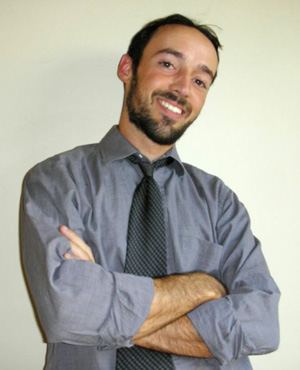(This post will assume you have a basic grasp on the major political and economic issues in Southern Utah. If this is not the case, I’ll sum it up for you right now: Water is life in the desert, and those who control water distribution in desert communities wield both great power and great responsibility. Washington County is the most arid part of the second most arid state in the nation, even while it has some of the lowest water prices and highest per capita water use in the nation. Go figure; okay, context set. Proceed at your own risk.)
Overall, it was a pretty staid affair. Sticking to a simple, pre-published agenda, local Water Czar (I’ve been told this is an official title; though I find this hard to believe, I’ll leave it capitalized) Ron Thompson gave an overview of water-related legislative issues for Utah in 2014, then gave an update on Southern Utah’s YTD water situation (terrible), Lake Powell’s YTD water situation (great, apparently), and the possible effects on climate change for the area’s future water considerations (whoa!)
Overall, I found Thompson very effective at building a desired case out of all available facts. I was impressed with his affability, and the restraint he showed in responses to some of the more partisan comments or questions he received along the way.
In general, his presentation and those following on the district’s ongoing updates to its resource management and conservation plans (they decided to split the two, reasoning that the two issues — how are they separate issues? — are too complicated to be considered together) were relatively high-level one-way updates: “This is what we’re doing, these are our goals and objectives; we just wanted to keep you in the loop. Any questions?”
Fortunately or not, the official meat of the meeting was easily the least interesting thing about it. Far more intriguing were the circumstances of the meeting itself and the composition of the attendees. I could write in depth about each (and may still), but for now, a few personal anecdotes will suffice.
First and foremost, it was amazing to me how on edge water district representatives appear to be about the local press. I was asked by no less than four individual water district representatives if I was a reporter (two of them asked specifically if I was with The Independent, which is known as a watchdog publication around here). I understand their assumptions (new face, laptop bag, recording the presentation), but it was just strange to be approached over and over in that way.
The level of unprovoked defensiveness I encountered (from everyone but their new PR person — she was a consummate pro, but she just moved here from Vegas) sure made it seem like this local government agency isn’t all that used to submitting to public accountability. And that’s a big problem, at least when it’s the most powerful entity, performing the most necessary public function, in a resource-scarce place like Southern Utah (note: You may also see me refer to this area as Dixie… named for its pioneer cotton production, not its racist implications — so back off!)
When I did, I found that all government meetings in Utah must be public, except with three relatively specific exceptions. One would have thought she would have just quoted one of those exceptions as being the case here (none were), instead of condescending me by pretending the burden of proof was on me to prove that the public should be able to treat a “public” meeting as truly public.
So, before letting her go, I asked if it was possible that the district’s high-quality recording of the meeting might be put on the district’s YouTube account so the public could access it and follow along with these issues. She hesitated for a moment before replying that when others had asked in the past, the district had looked into and found it to be prohibitively costly to do so (to be clear, this is just the posting to YouTube part; buying a nice digital camera and tripod were apparently cheap enough).
I asked her if a member of the public volunteering to perform the expensive parts of that for free would solve the issue, and she quickly took my number and said someone would get back to me. Hilariously, not five minutes later, I asked another district staffer who was carrying the tripod and camera away whether posting the recording was possible, and he hesitated and replied that it was, but that the recordings weren’t high quality enough to put online for the public.
So which is it? Does it matter? To be completely honest, it sure seemed like both of those answers were simply excuses for not wanting to put the recording of a public meeting out in public.
Which pretty much sums up how everything seems to work around here. What happens in public is courteous, considered, structured, and planned to the last detail. What happens behind the scenes is where all the action is. While this is true to some extent in every unique political and economic environment, Southern Utah appears to harbor one of the more extreme versions of this observation.

David Ryal Anderson can be loud, but mostly he lives a quietly reflective existence. He shares more (resources, thoughts) than he probably should. He loves digging to the heart of any issue, eschewing binary characterizations and inserting himself into difficult situations of any kind.




